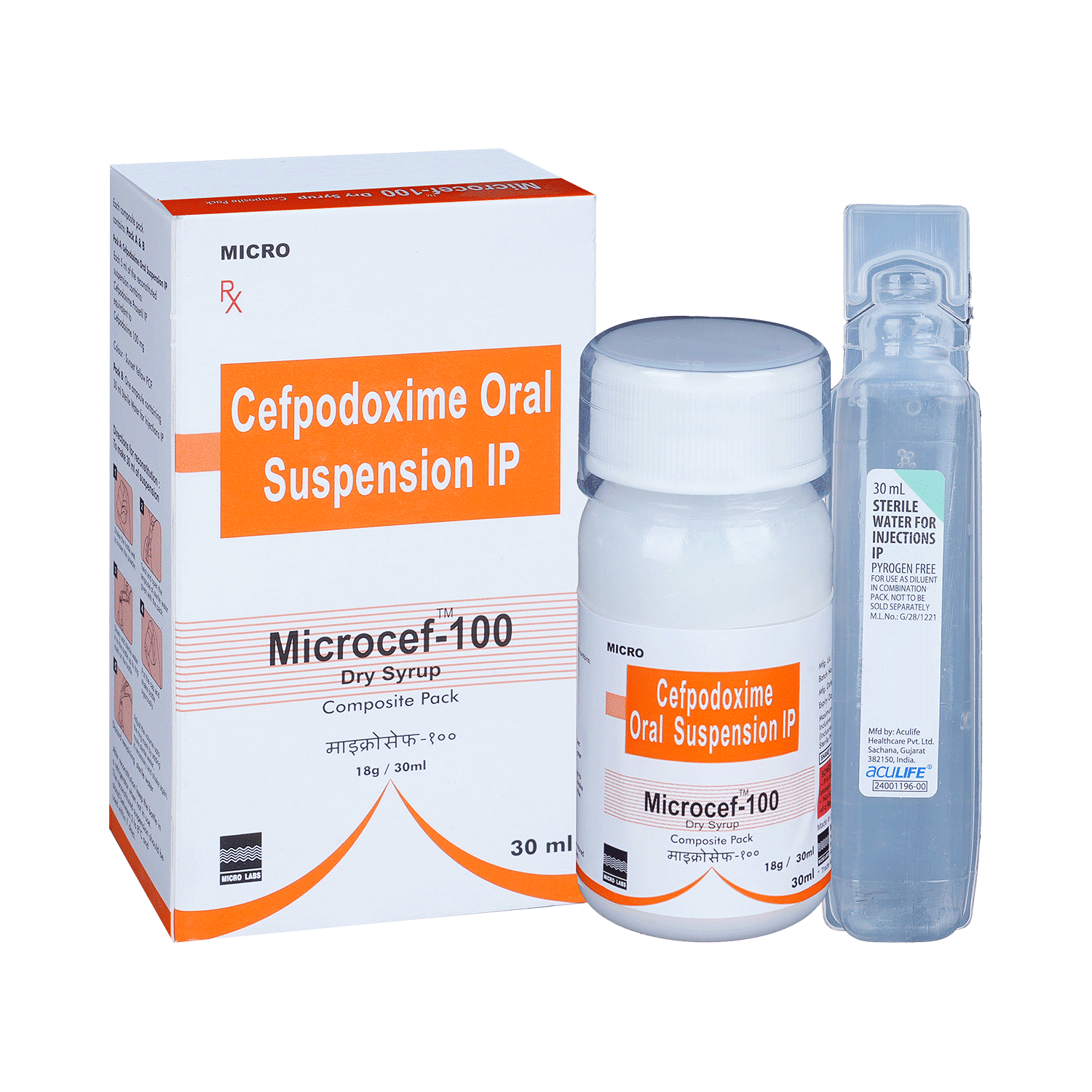







Microcef 100 Oral Suspension
Manufacturer
Micro Labs Ltd
Salt Composition
Cefpodoxime Proxetil (100mg/5ml)
Key Information
Short Description
Microcef 100 Oral Suspension is an antibiotic medicine used to treat a wide range of bacterial infections in children.
Dosage Form
Oral Suspension
Introduction
Microcef 100 Oral Suspension is an antibiotic medicine commonly given to children for the treatment of bacterial infections targeting various parts of the body. It is also effective in treating typhoid fever in children and adolescents.
Directions for Use
Give this medicine with food to avoid an upset stomach. Encourage your child to drink plenty of water in case diarrhea develops as a side effect.
How it works
Microcef 100 Oral Suspension works by preventing the formation of the bacterial protective covering (cell wall) which is essential for the survival of the bacteria.
Quick Tips
Your child must complete the entire course of antibiotics. Stopping too soon may cause the bacteria to multiply again Give this medicine with food to avoid an upset stomach Encourage your child to drink plenty of water in case diarrhea develops as a side effect Conditions like common cold and flu are caused by viruses. Never use this medicine for such conditions Only give Microcef 100 Oral Suspension to your child for their current infection. Never save medicine for future illnesses
Related Medicines
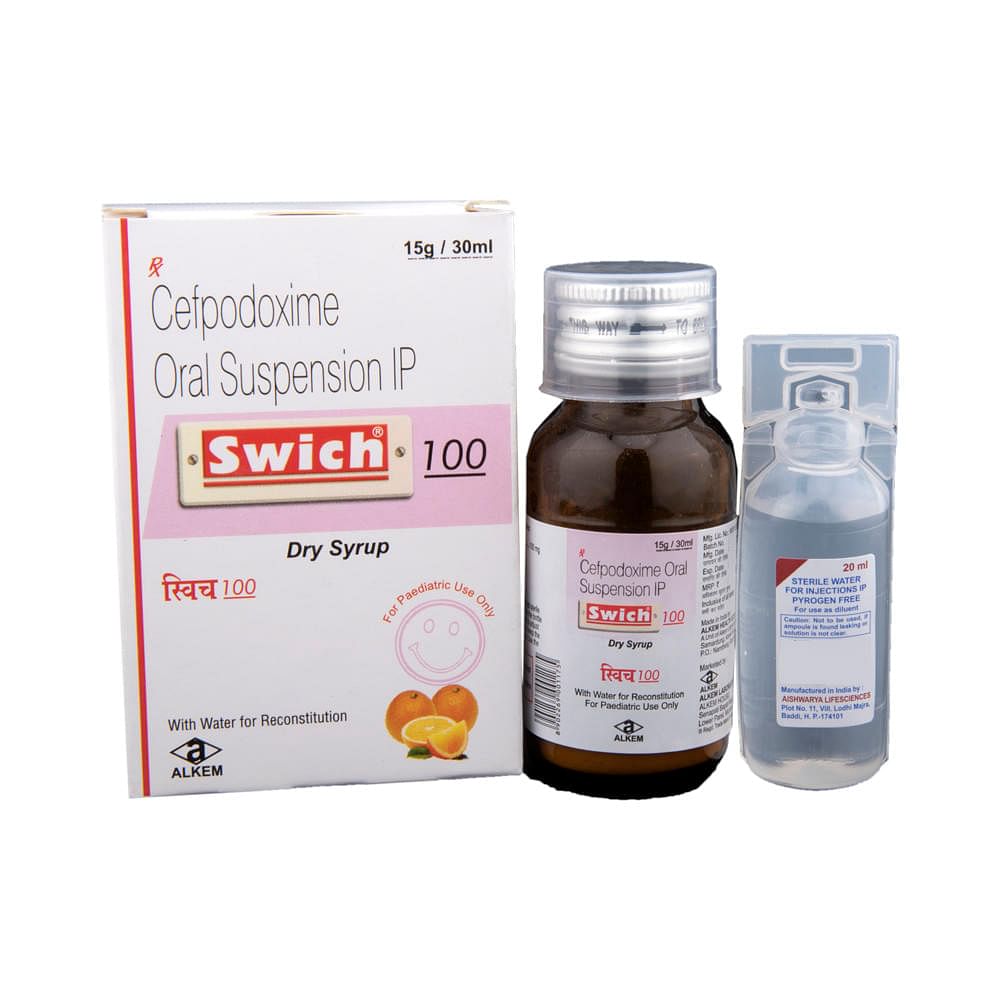
Swich 100 Dry Syrup
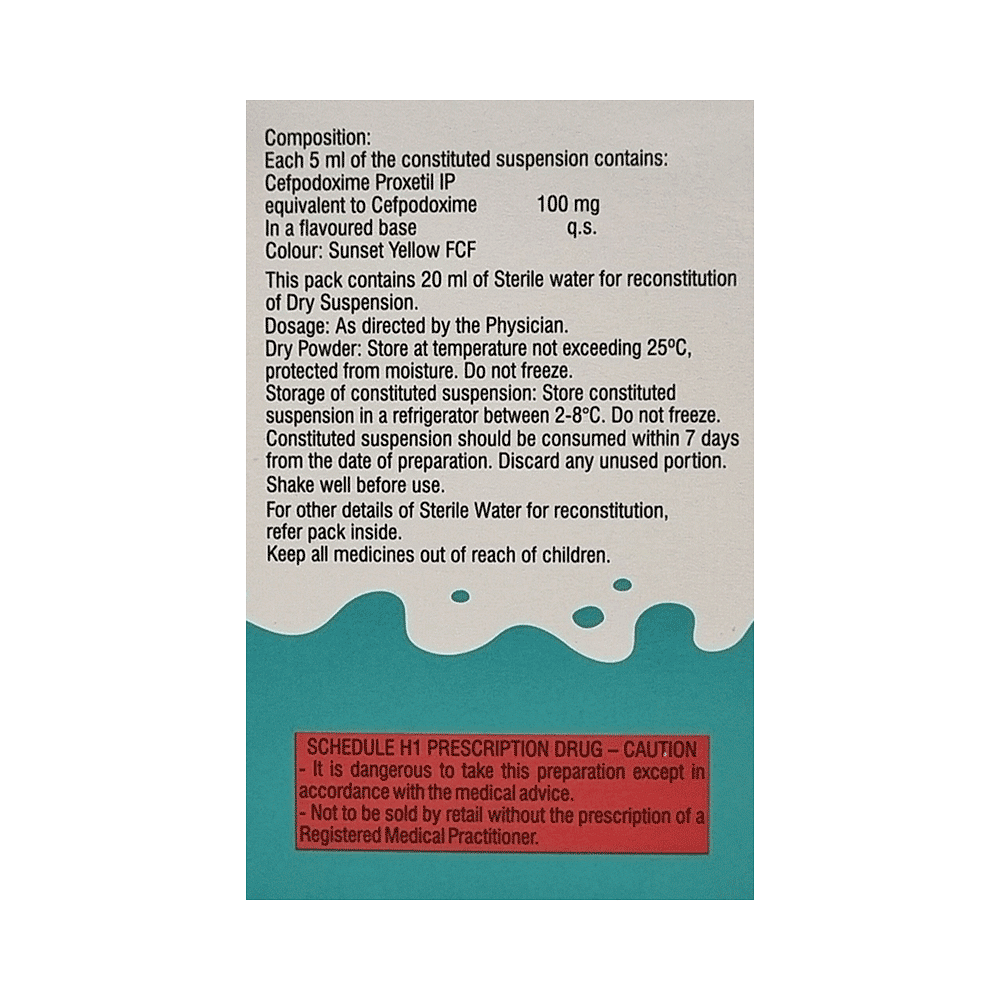
Cepodem 100 Dry Suspension
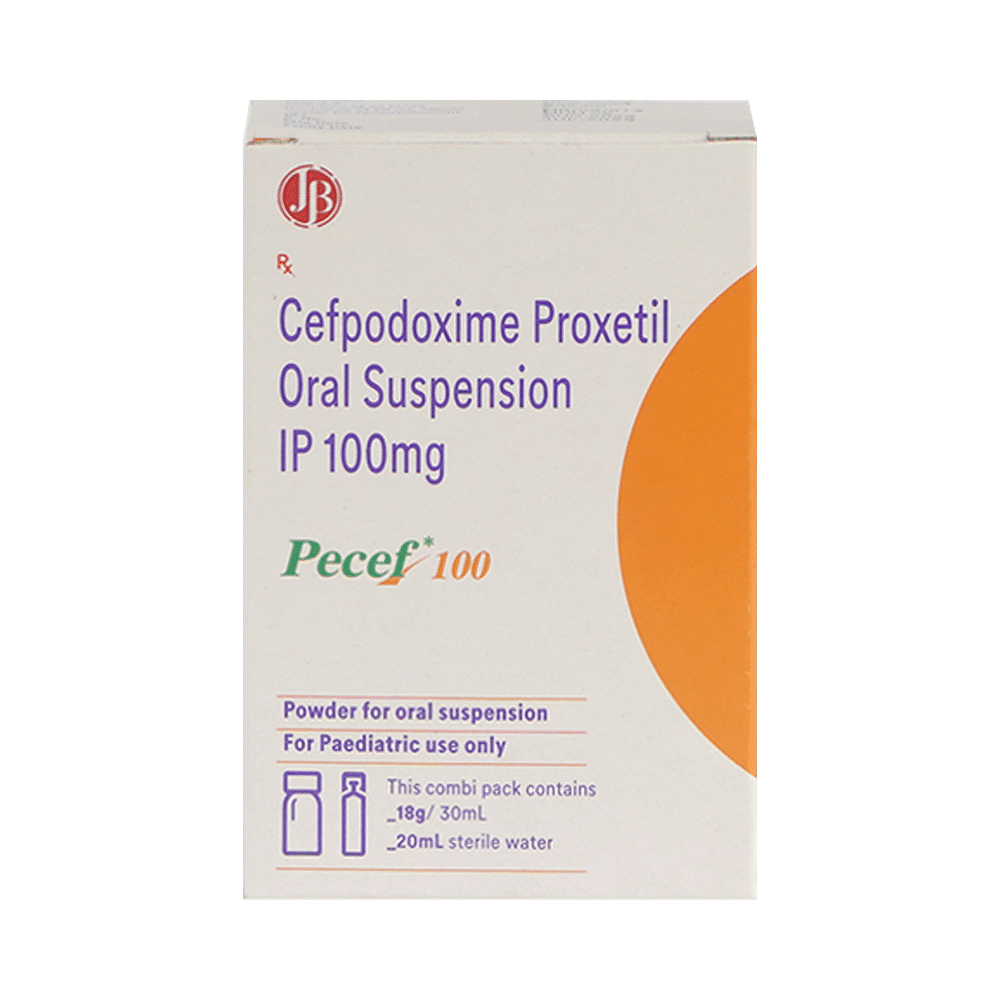
Pecef 100 Powder For Oral Suspension

Dopox 100 Dry Syrup

Dalwopod 100 Dry Syrup

Doxyprox 100 Oral Suspension Mango

Cefnocef 100 Oral Suspension
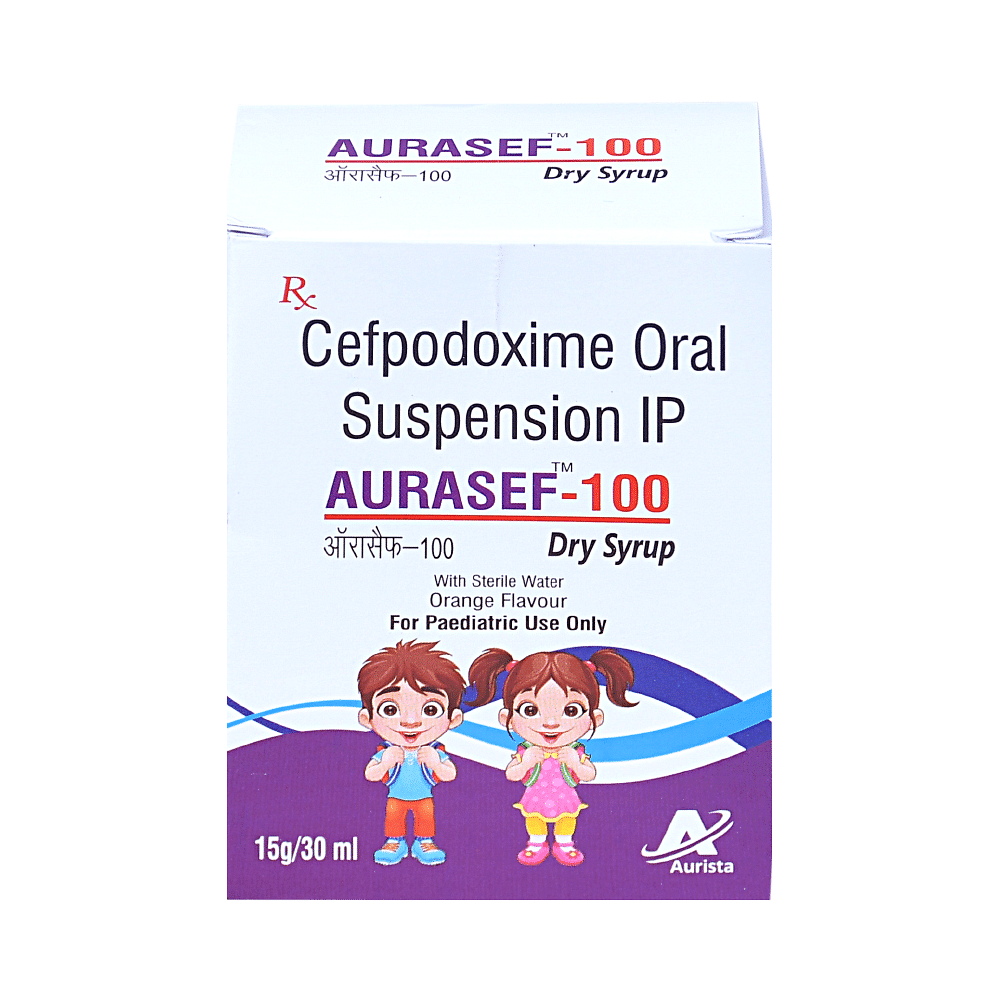
Aurasef 100 Dry Syrup

Ipod 100 Dry Syrup Delicious Mango
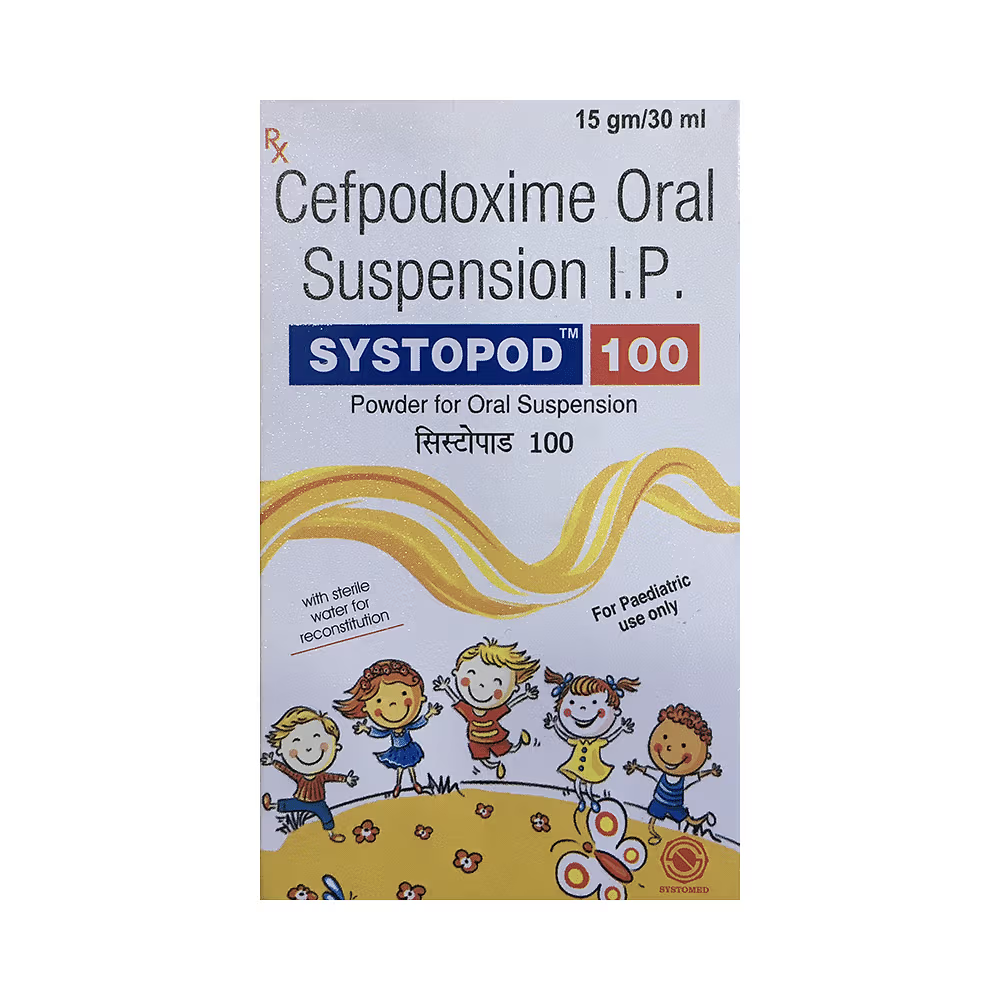
Systopod 100 Oral Suspension
Frequently asked questions
What should I do if my child accidentally takes too much Microcef 100 Oral Suspension?
If you think your child has taken an extra dose of Microcef 100 Oral Suspension, speak to a doctor immediately. An overdose can cause unwanted side effects and potentially worsen their condition.
Are there any serious possible side effects of Microcef 100 Oral Suspension in children?
Some severe side effects of this medicine include persistent vomiting, kidney damage, allergy, diarrhea, and severe gastrointestinal infections. If your child experiences these symptoms, consult with their doctor for assistance.
Can other medicines interact with Microcef 100 Oral Suspension when given to my child at the same time?
Microcef 100 Oral Suspension may sometimes react with other medications or substances. Inform your child's doctor about any other medicines they are taking before starting Microcef 100 Oral Suspension. Additionally, consult their doctor before administering any medication to your child.
Can my child get vaccinated while on treatment with Microcef 100 Oral Suspension?
Antibiotics generally do not interfere with vaccine ingredients or cause adverse reactions in children who have just been vaccinated. However, it's recommended that children taking antibiotics should wait until they recover from their illness before getting vaccinated.
Which laboratory tests may be necessary for my child while on long-term treatment with Microcef 100 Oral Suspension?
Your child's doctor may prescribe periodic kidney function tests and liver function tests to monitor their condition.
Is yellow-green mucus coming out of my child's nose a sign of a bacterial infection?
Yellow or green mucus in the nose does not necessarily mean that antibiotics are required. During a common cold, it is normal for mucus to thicken and change color. Symptoms often last for 7-10 days.
Can I give my child antibiotics if they have a sore throat and ear infection?
No. More than 80% of sore throats and ear infections are caused by viruses, and antibiotics should not be used for viral infections. If your child has symptoms such as a sore throat, runny nose, barky cough, pain, and discharge from the ear, it is likely due to a virus. Consult their doctor for guidance.
Will a common cold caused by a virus always result in a secondary bacterial infection? When should I start antibiotics to prevent an infection?
In most cases, bacterial infections do not follow viral infections. Using antibiotics to treat viral infections may lead to side effects without benefiting your child's health. Use antibiotics only after consulting with their doctor.
Can Microcef 100 Oral Suspension impact my child's digestive system?
Children often experience stomach upset while taking antibiotics. When antibiotics are given, the good bacteria in their gastrointestinal tract may be affected too. Microcef 100 Oral Suspension can kill off good bacteria along with bad bacteria, increasing the risk of developing other infections. If your child experiences diarrhea while on Microcef 100 Oral Suspension, do not stop the medication course. Instead, consult their doctor for advice.
Can Microcef 100 Oral Suspension lead to bacterial resistance in my child?
Yes, irregular treatment, repeated use, and misuse of Microcef 100 Oral Suspension can lead to bacterial resistance. Resistant bacteria are no longer killed by antibiotics and may cause reinfection.


